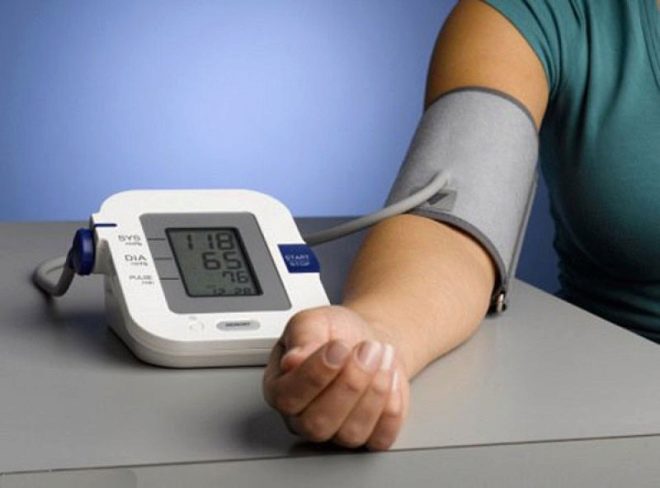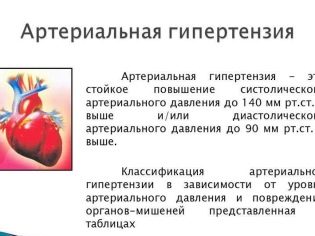Early Pregnancy Pressure
Optimal blood flow is very important, especially in the first weeks of carrying a baby. Through the blood to the internal organs of the child enters all the substances necessary for its growth and development. Emerging blood pressure surges in early pregnancy can be very dangerous for both the expectant mother and her baby.
The importance of the indicator
In early pregnancy, blood flow indicators are extremely important. Maintain blood pressure (BP) within the normal range should be from the very first days after conception of the baby. At the beginning of pregnancy, its indicators do not change significantly.
The first changes in blood pressure in pregnant women are recorded a few weeks after conception of the baby. Deviations from the norm are largely due to the changing hormonal background. Changes in blood pressure levels increased progesterone concentration - one of the main hormones of pregnancy.
This biologically active substance, getting into the systemic circulation, leads to the fact that the tone of the blood vessels changes. With the development of the baby, the diameter of the arteries can change quite a lot. This results in a whole range of different hormones.
Features in this period
Changes in blood pressure can lead to toxicosis or preeclampsia. These pathologies are accompanied by various adverse symptoms. A woman may experience heart palpitations, dizziness, and also a headache. These pathologies lead to a pronounced disruption of the blood supply to the uterus and fetus, which is actively developed in this reproductive organ.
By the end first trimester of pregnancy blood pressure indicators may change. During this period, the unique system of uteroplacental blood flow begins to improve. This is a common circulatory network between the baby and his mother. It will function throughout the pregnancy. Through the common blood flow system with the mother, the baby will receive all the necessary nutritional components for its full growth and development.
Norms
Early pregnancy pressure should be strictly within the normal range. If the expectant mother has any diseases or pathologies of the cardiovascular system, then it should be observed throughout the entire period of the baby being carried by the therapist. If necessary, the woman selected an individual scheme of drug therapy.
Doctors distinguish several types of blood pressure. The first type is systolic. It can also be called the "top." In the early stages of pregnancy, the values of this hemodynamic index must not exceed 140.
If systolic blood pressure is maintained at 120 mm. Hg Art., this is a good sign of the normal operation of the cardiovascular system.
The second measurable type of blood pressure is diastolic. It is also called the "bottom." For pregnant women in early pregnancy, its indicators must not exceed 90 mm. Hg Art.
Is it possible to measure at home?
You can measure blood pressure yourself. To do this, it is not necessary to visit the antenatal clinic or clinic. A special device will be needed for the measurement. tonometer. Currently, there are no difficulties with its acquisition. Such measuring devices are freely sold at any pharmacy.
Many of the modern devices also have not only the function of measuring blood pressure. With their help, you can also determine the pulse and suspect arrhythmia. After pressure measurement, the instrument will display these figures on the monitor.
A blood pressure check should be carried out in complete rest. After a hearty meal or cleaning the apartment, you should not immediately take up the tonometer. Rest before taking a measurement.
Each tonometer is attached special instructions for use. She should not be neglected. It describes in detail how to properly measure blood pressure in the home.
The tonometer is a necessary device for all expectant mothers who have had pressure shocks. However, it is often not only the pregnant woman who uses the measuring device. It often happens that a tonometer becomes a necessary device for many members of her family.
Doctors advise after measuring pressure all indicators of blood pressure to write in a special notebook. It also needs to indicate the time and date when the home study was conducted. When you visit the clinic, this notebook will need to show the therapist. This will help the doctor to better understand the situation and make a more competent treatment plan.
Treatment
The jumps in blood pressure in the very early stages of pregnancy are the first "bell" about some kind of trouble in the female body. In such a situation, extended diagnostics are required. It is necessary so that the doctor can figure out what reason influenced the occurrence of such functional disorders.
Persistent increase in blood pressure experts call hypertension. The development of its lead a variety of causal factors. During pregnancy, they can be much more.
If, after the diagnosis, the cause of arterial hypertension has not yet been established, in this case, experts say that hypertension. This disease is hereditary. It manifests itself not only in the future mother, but also in her close relatives.
Lowering blood pressure below normal values may be evidence of advanced hypotension. This condition also contributes to the development of numerous adverse symptoms. As a rule, the woman begins to be very worried about dizziness. She is growing weak, and significantly increases fatigue.
For the normalization of blood flow indicators, doctors recommend expectant mothers watch your daily routine carefully. Regular rest in the early stages of pregnancy is a must for them. Improve the work of the nervous system will also help complete sleep. The future mom should sleep at least 8 hours a day.
Diet also plays a very large role in maintaining normal blood pressure levels. To increase this indicator leads to excessive consumption of sodium chloride (salt).
It is currently found in large quantities in many finished products. If the expectant mother has a tendency to develop edema due to increased pressure, then she should carefully monitor the amount of salt consumed.
In maintaining normal blood pressure indices also plays a big role. drinking regime. Most of the fluid consumed should be ordinary drinking water. Expectant mothers should eat at least 1.5 liters per day.
If a woman has any diseases of the kidneys or urinary tract, the drinking regime is reviewed. In this case, the amount of fluid needed is selected individually.
Doctors advise to limit any intense exercise to expectant mothers who have various blood pressure disorders.
Walking outdoors will be an excellent alternative to sports. During the promenade, the future mother's body receives a lot of oxygen, which is required not only for her, but also for her baby.
Whenever possible, doctors try not to prescribe medication immediately. Many of the drugs may have an adverse effect on fetal development. It is important to remember that all pharmaceutical drugs can have side effects.
If, against the background of the normalization of the daily regimen, blood pressure indices deviate from the norm, then it may be necessary to prescribe antihypertensive agents. Take these drugs should be daily. Dosages and frequency of use are selected individually by the therapist.
After prescribing antihypertensive therapy the doctor must monitor the patient's condition. In this case, you may need more frequent visits to the clinic.
If a woman has any diseases of the cardiovascular system, additional consultation with a cardiologist may be required. To clarify the diagnosis, the doctor may prescribe various tests, as well as send the expectant mother to undergo an electrocardiogram (ECG).
All about the pressure during pregnancy will tell the doctor in the next video.






















